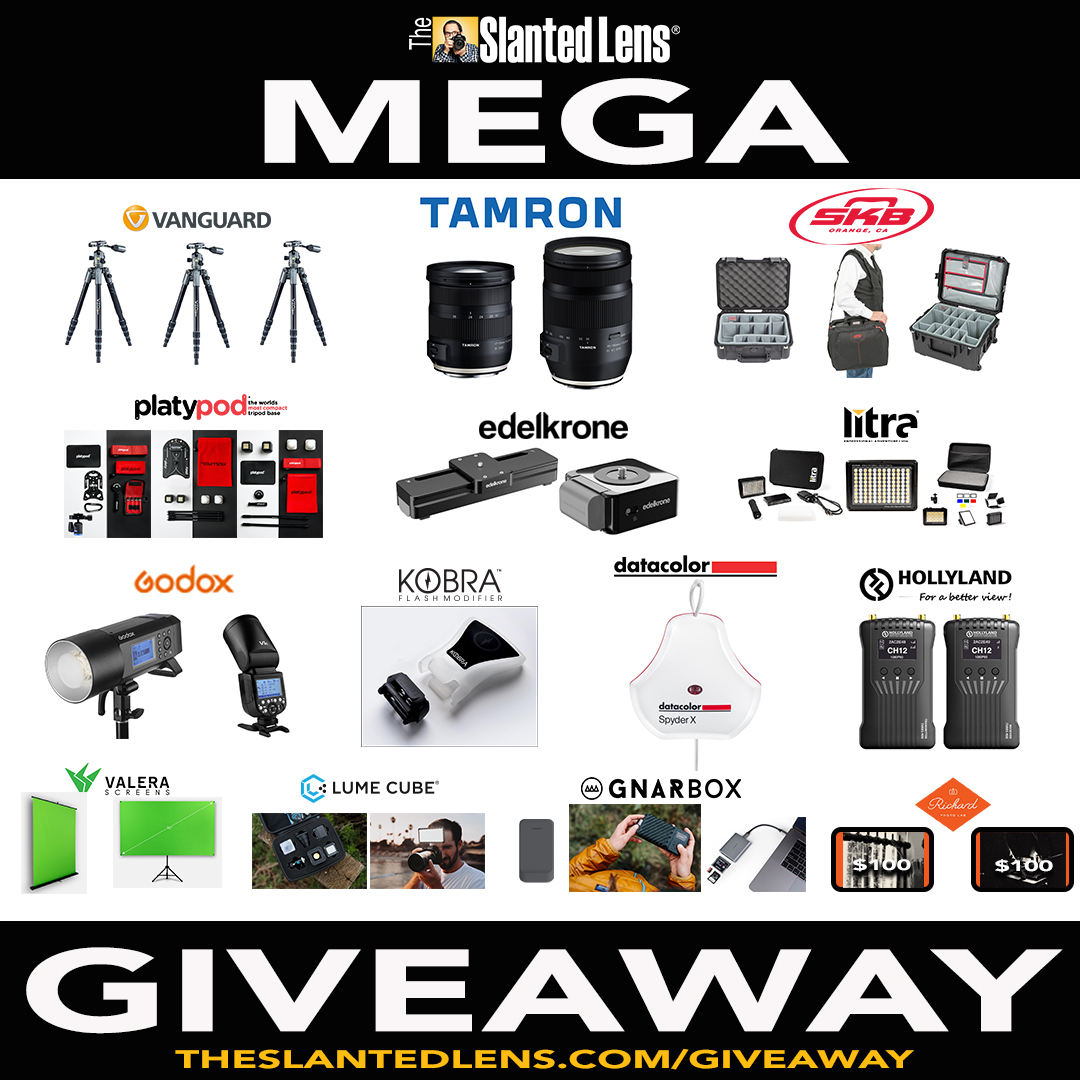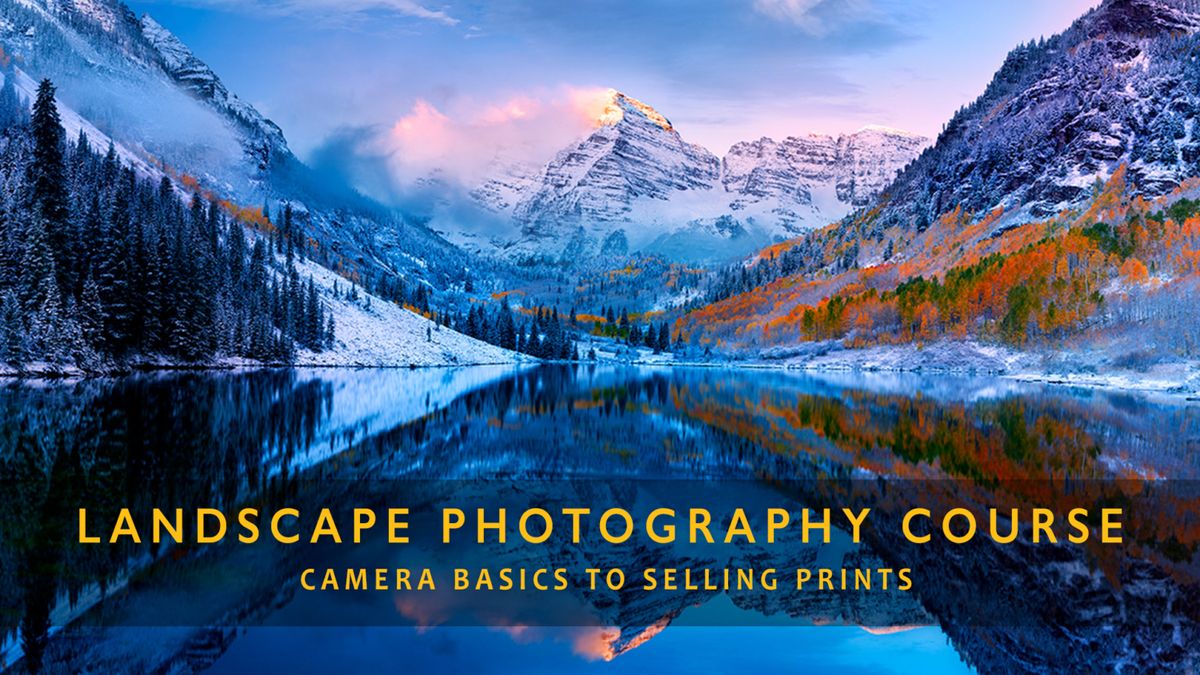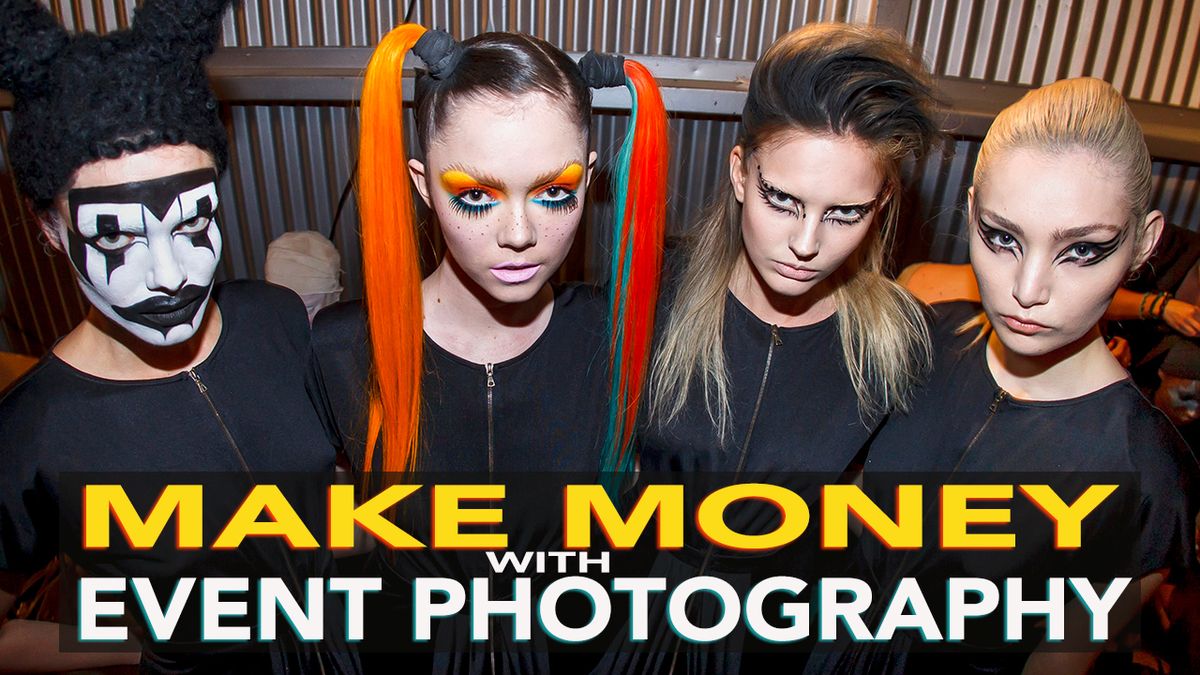
Today on TSL we’re going to answer the comments and questions we got on how to make money with event photography! Great lesson, great comments, great questions, but I wish Paul was here to help me because there’s so much great information – we want you to know how to make money and know how to find those events.
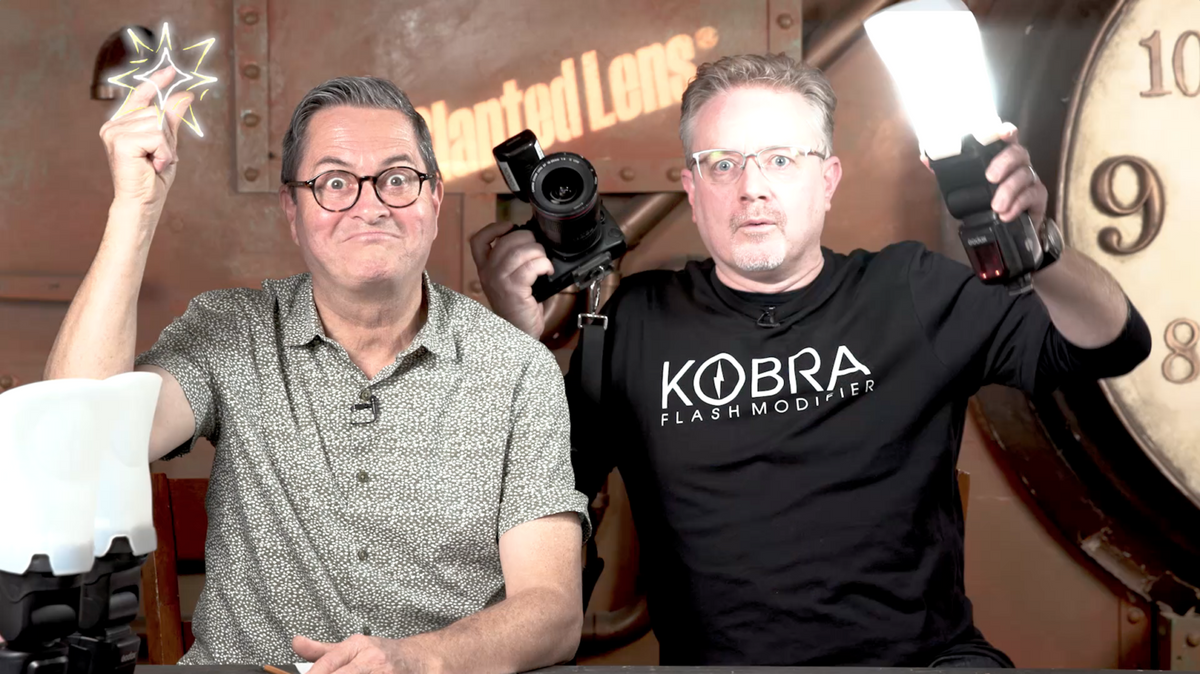
Finally, we can answer everyone’s questions and make this part 2 video!
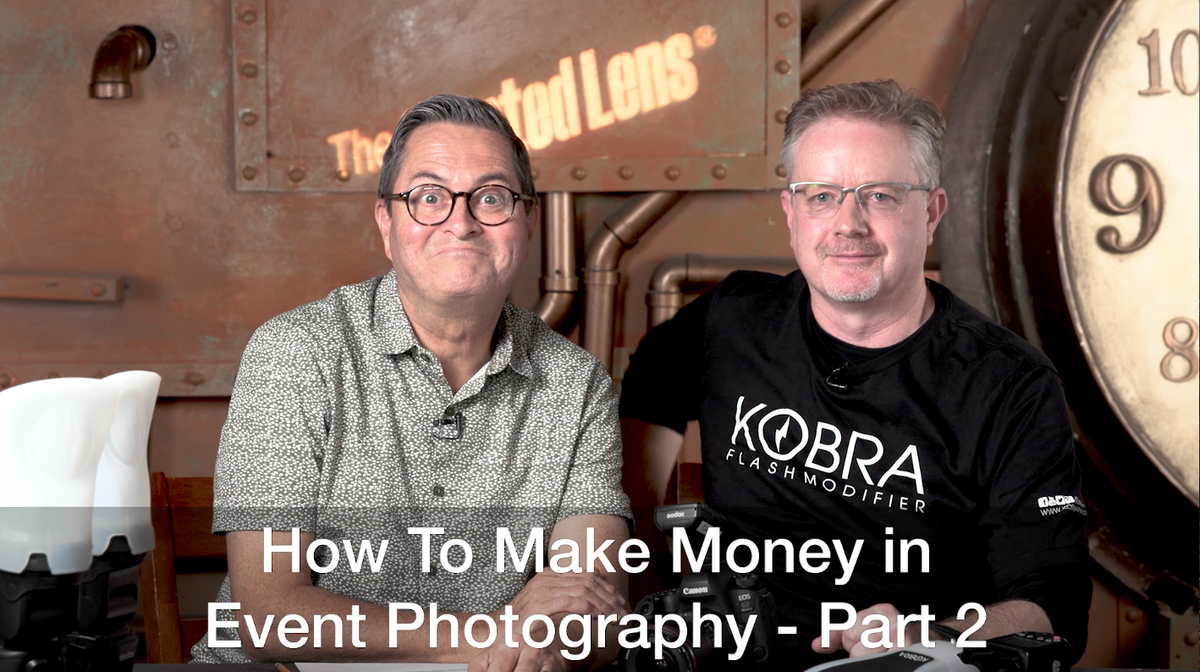
1 How Much Should You Charge?
The biggest question everyone wants the answer to is, what do you charge?
I had a rep who told me once, “the first person to say the price always loses”. So a great question to ask when hired for an event is “what is your budget?”.
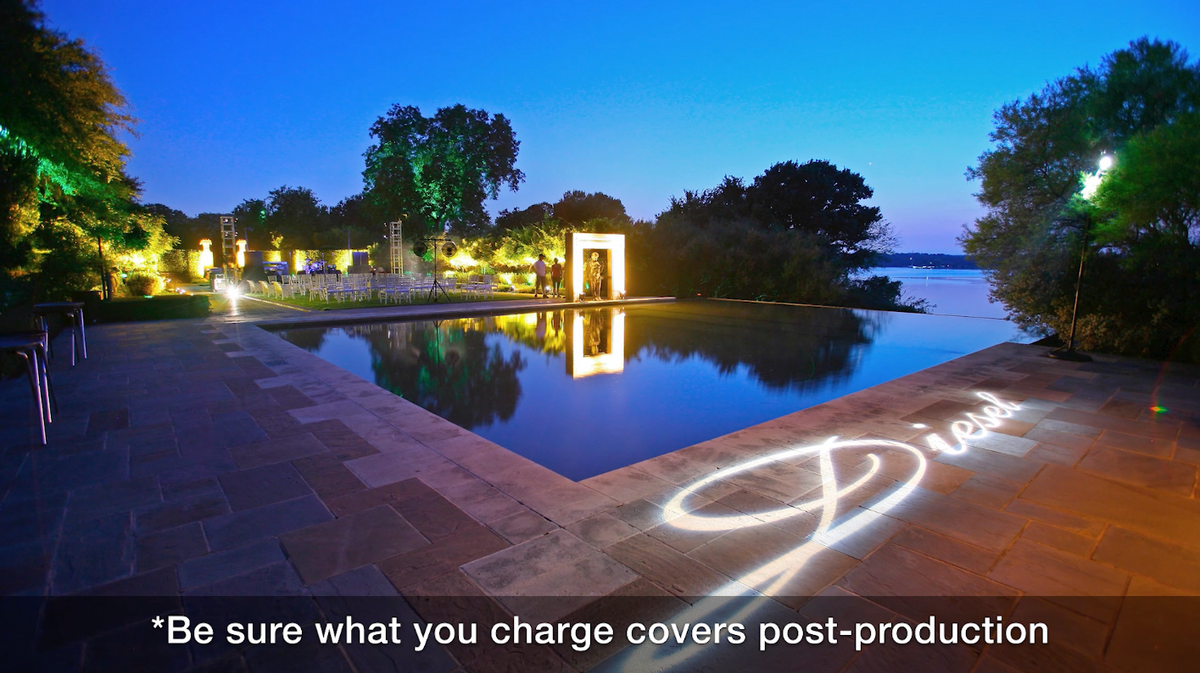
Every event has a budget, and it’s the budget for marketing. Every planner wants to do another event and the way to show that it was a good event is through photography.
Let’s just get right down to it. What do you charge? There’s a lot of numbers out there, people have a lot of different opinions about this. We have to consider how much your time is worth, and there are a lot of elements to think about.
You could say “my time’s worth 10k for a 4 hour period, but you’re not going to get that so, Paul what do you charge?”
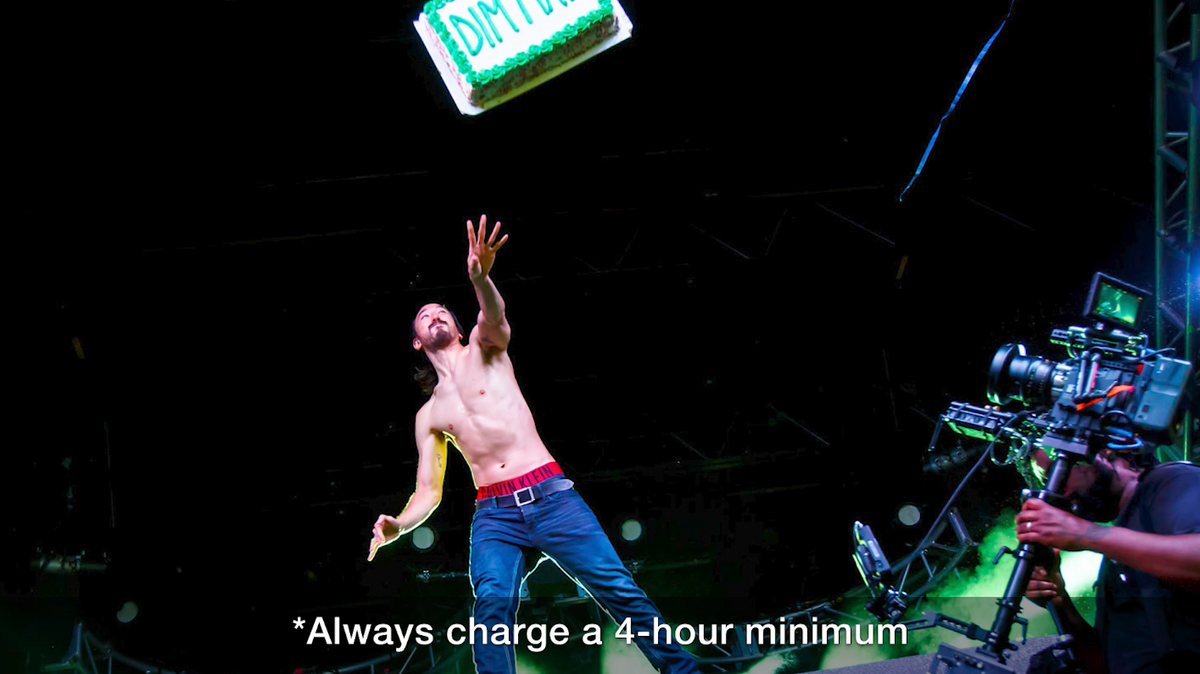
“I put a lot of work into post production, so to make it worth my while I have this 4hour minimum so I know that’s what I’m going to make just to walk out the front door.
An experienced photographer will charge $500-$1000 for a 4 hour minimum. That’s a good starting point. I don’t walk out my front door for less than $500. If you only charge $150 for an event, that’s all you’re going to get. If you only charge $500 for weddings, you’re only going to get $500 for weddings!”
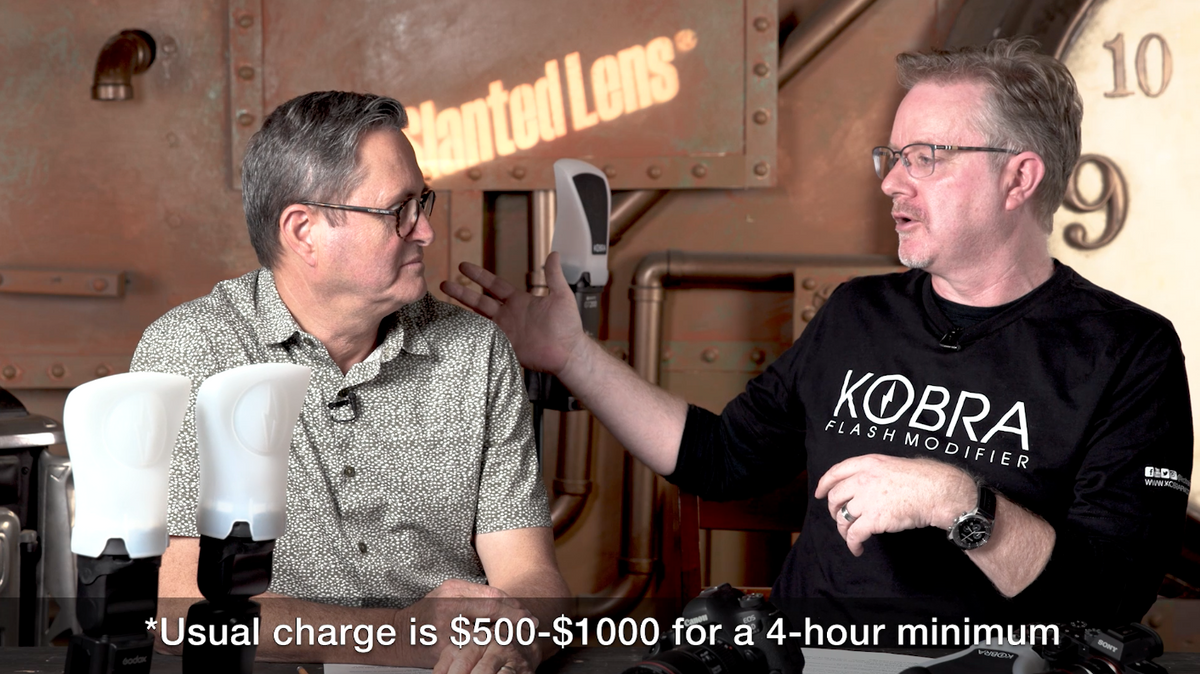
Where you live, the size of the event, a lot of things are going to come into play for what you’re going to charge. But don’t undersell yourself, and with each venue, bump it up a little bit. If someone says no, then they just don’t know that you’re at the top of your game.
2 Meet with the Client Before the Event
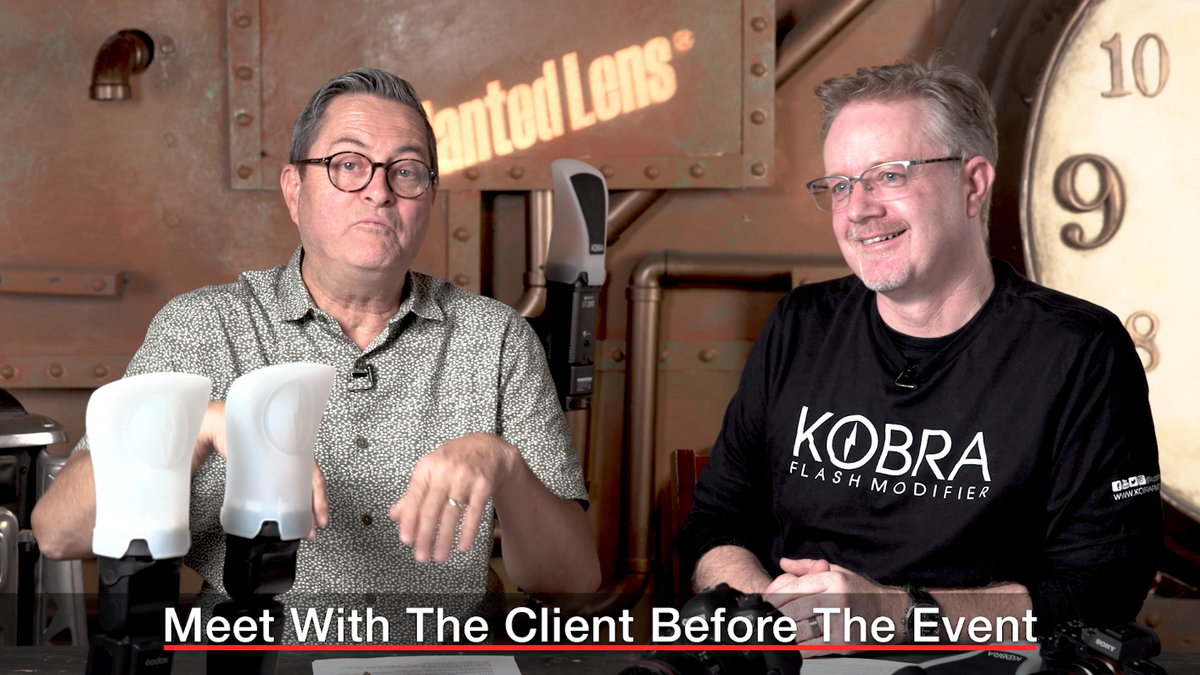
It’s a really good idea to have a meeting with your client before you get started. There’s a lot of things you’re going to have to learn before you shoot.
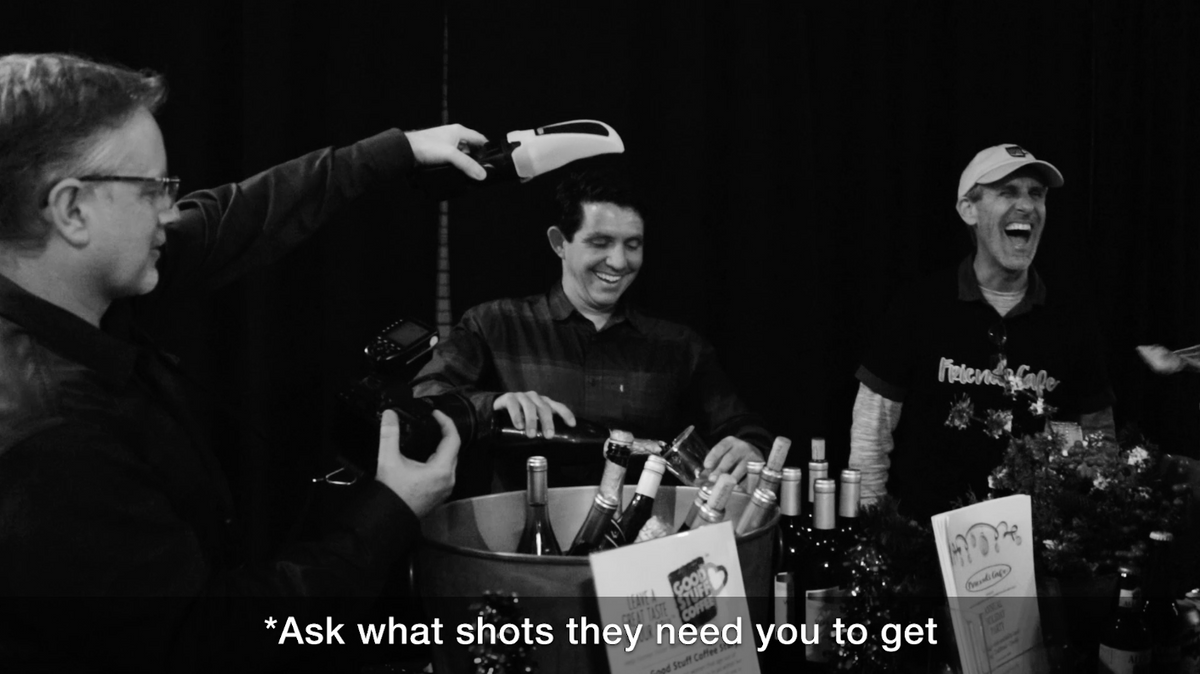
“Definitely! The client has a vision of the whole event layout and they want to see it. So it’s very important to ask them that. What is the shot that sums up the event? What’s the money shot? Ask them these things!”
“Who are the celebrities? What are the coolest things happening tonight?”
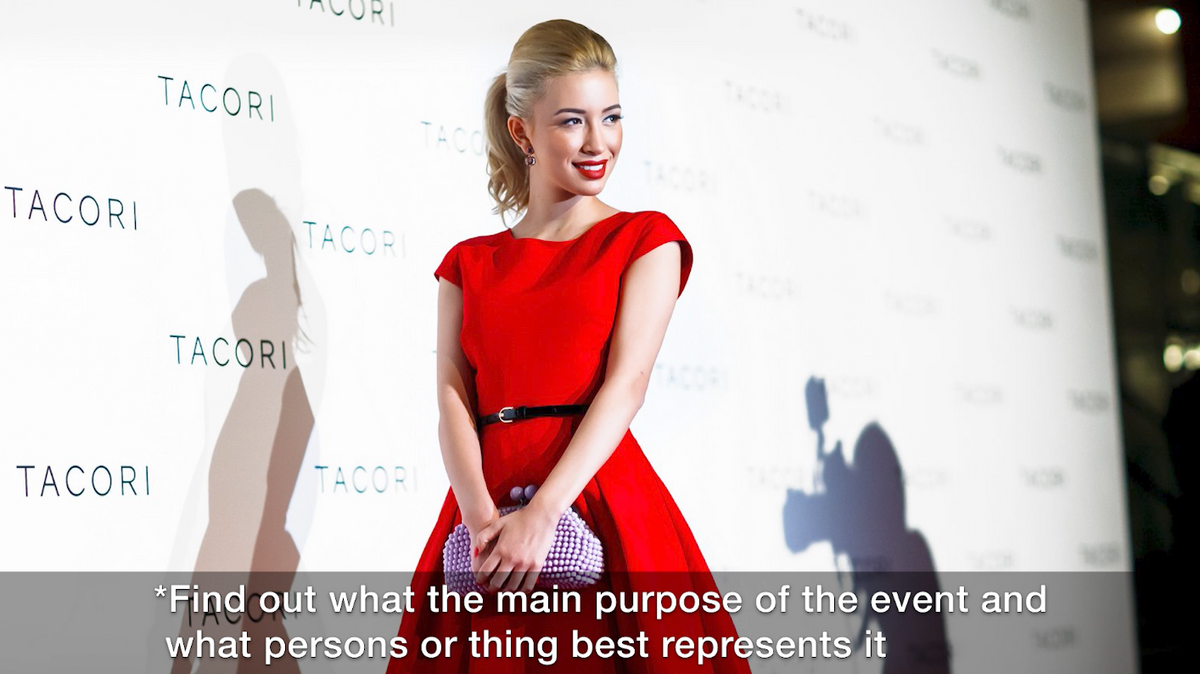
“Who are the elite people here? What’s the 1 person you need to get a picture of, and establish that up front.”
Check if there is a shot list.
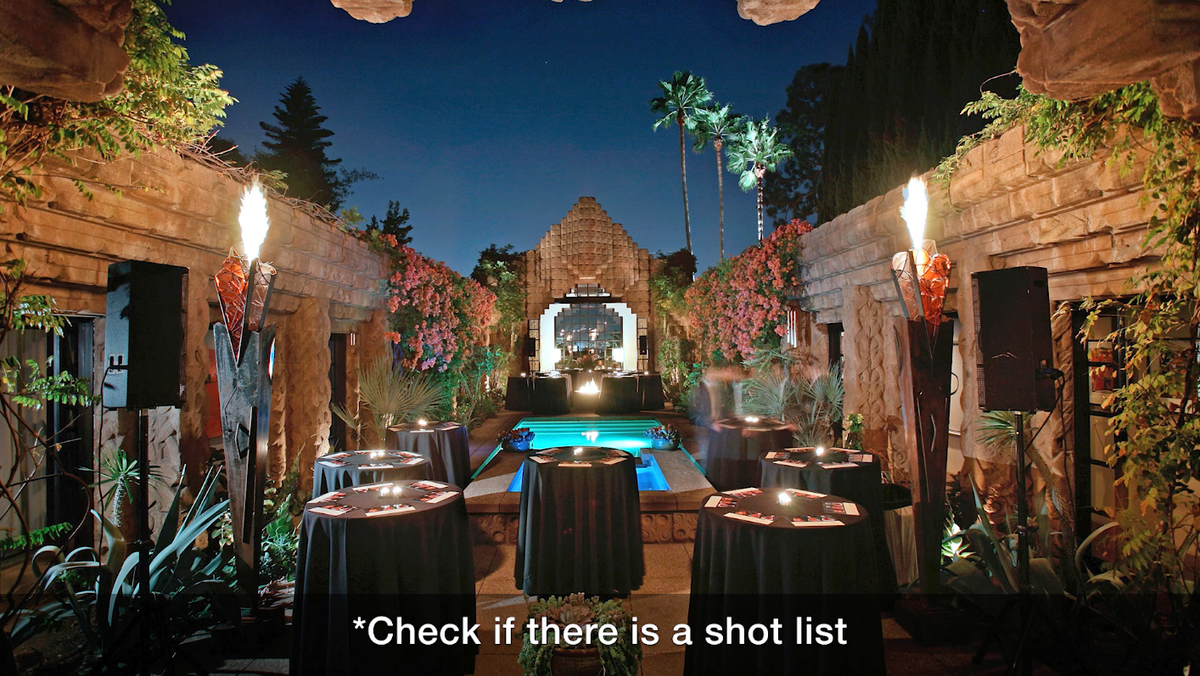
“You’re going to get a shot list. They can be good and also can be bad. I say it can be bad because the very first shoot I did, I had a shot list and I completely messed it up, because I assumed I knew where everything was and I didn’t. I assumed I knew who everyone was and I didn’t. So I learned really fast from that first time and put the ownership back on them. Have them assign a person to go around with you at the beginning to point out the people and items on the shot list. Then at the end of the night you’re not scrambling to find those shots, and that person has already reported back that you’ve got everything on that shot list.”
3 Work harder than the photographer next to you.
Paul is great at working harder than the photographer next to him. It’s not about comfort, it’s about working harder. How do you do that Paul?
“Taking the flash off the camera! It’s extra work to do that, but it will make you stand out.”
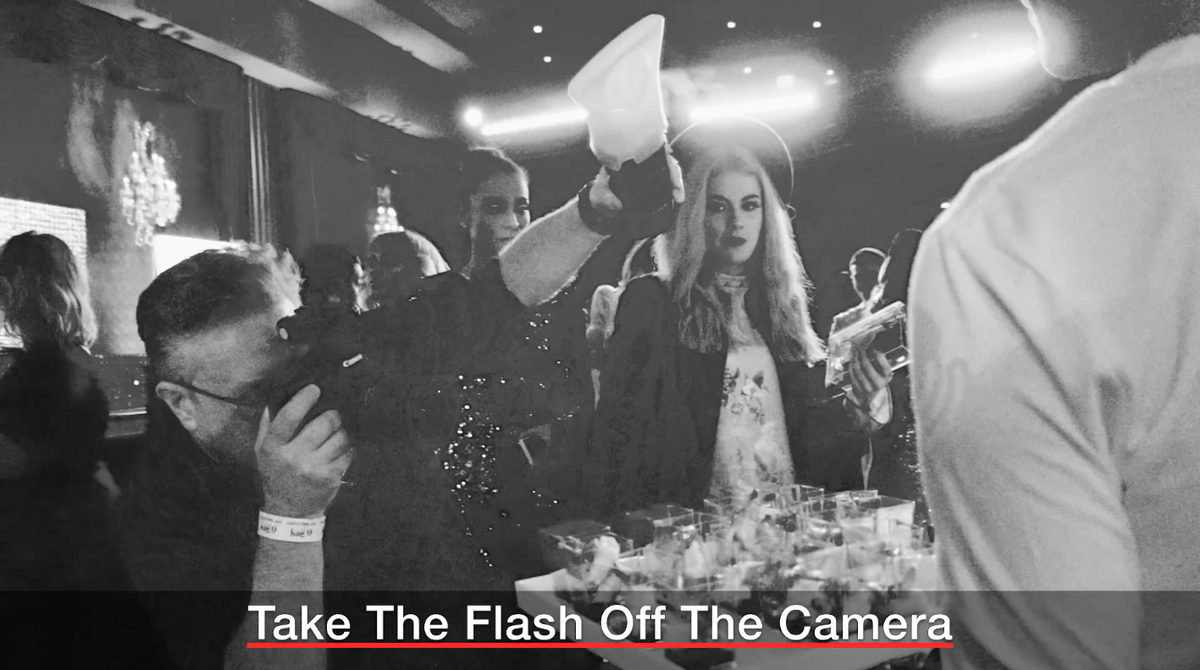
Why is it worth it?
“When you have it on camera, it’s dead and very flat. The Kobra does work well while on camera, but what I lost to do to stand out is have the flash off camera. You can do your vertical shots, horizontal shots both quickly without hassle.
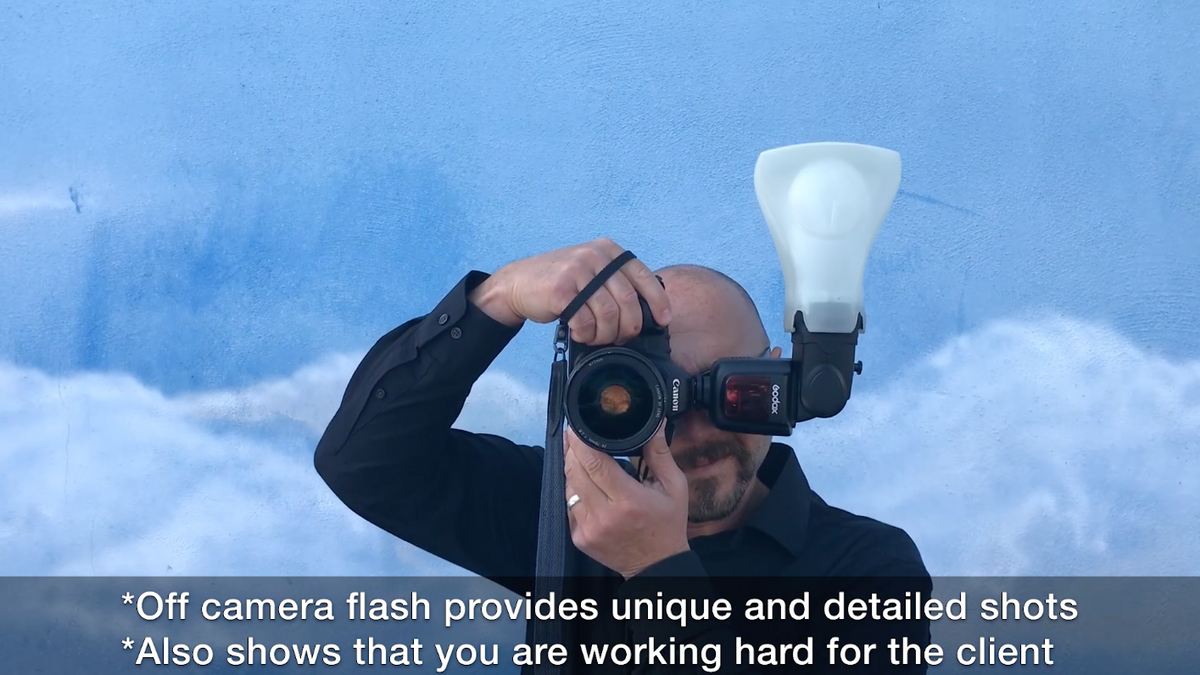
Never stand in the corner doing nothing. Always stay active! And when people are eating, that’s usually when I’m downloading images for social media, sharing them with the client on location. You must always be ON. They hire you for a few hours, and they want to see you working all of those hours.”
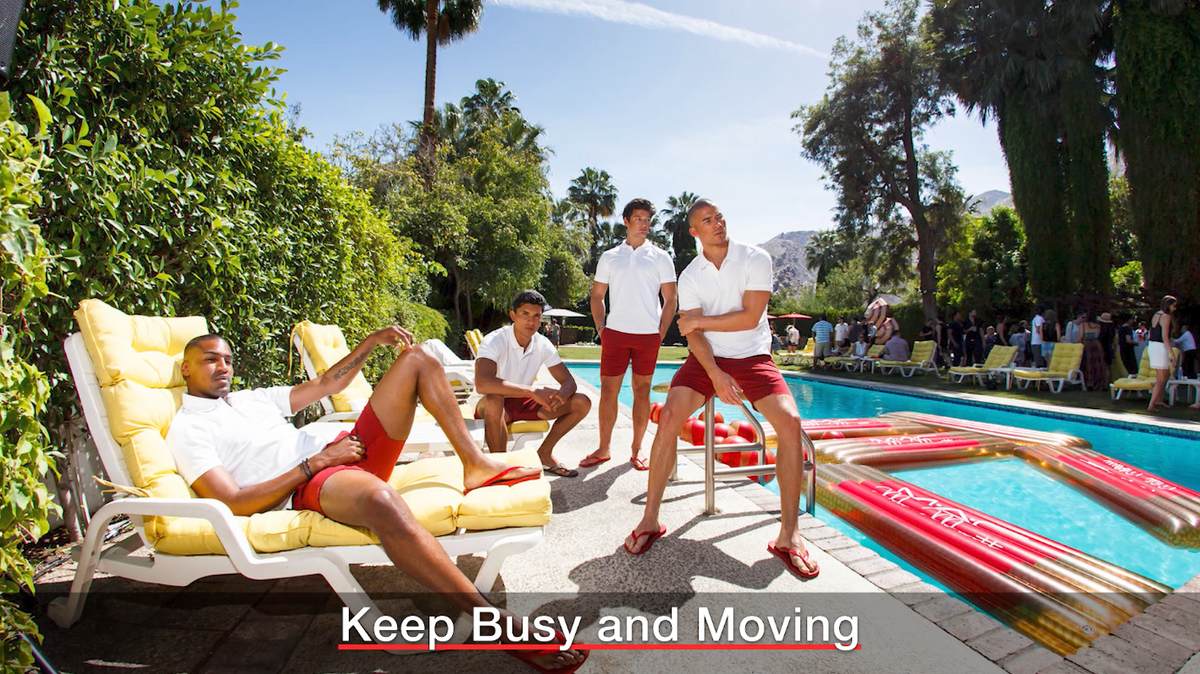
Are you using a tripod when you’re at a venue? Because that gives you the ability to drag the shutter, and gives you a beautiful look at the lights inside the venue!
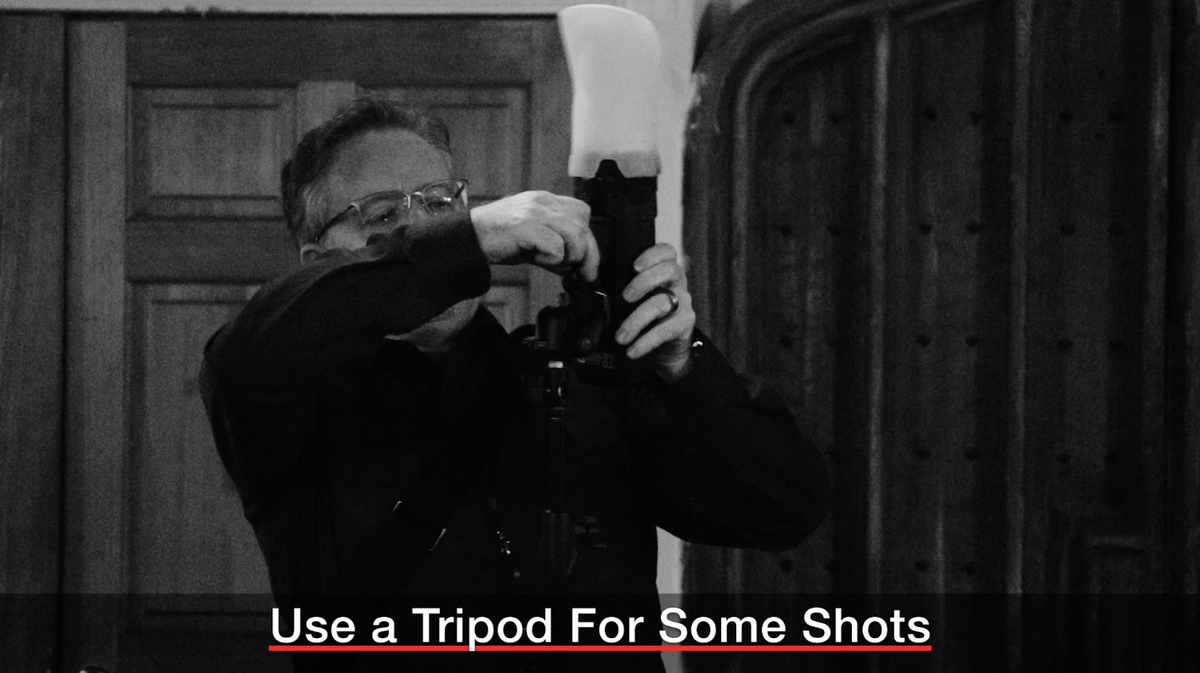
“One of the reasons I created Kobra is because I want to make things lighter and I want equipment to be smaller, so I made a light stand that can turn into a tripod! All of a sudden I have this stand that can go really low and high. I can drop my shutter and get these epic shots that show movement. And it’s not just a tripod, it’s a light stand!”
4 Tell The Full Story
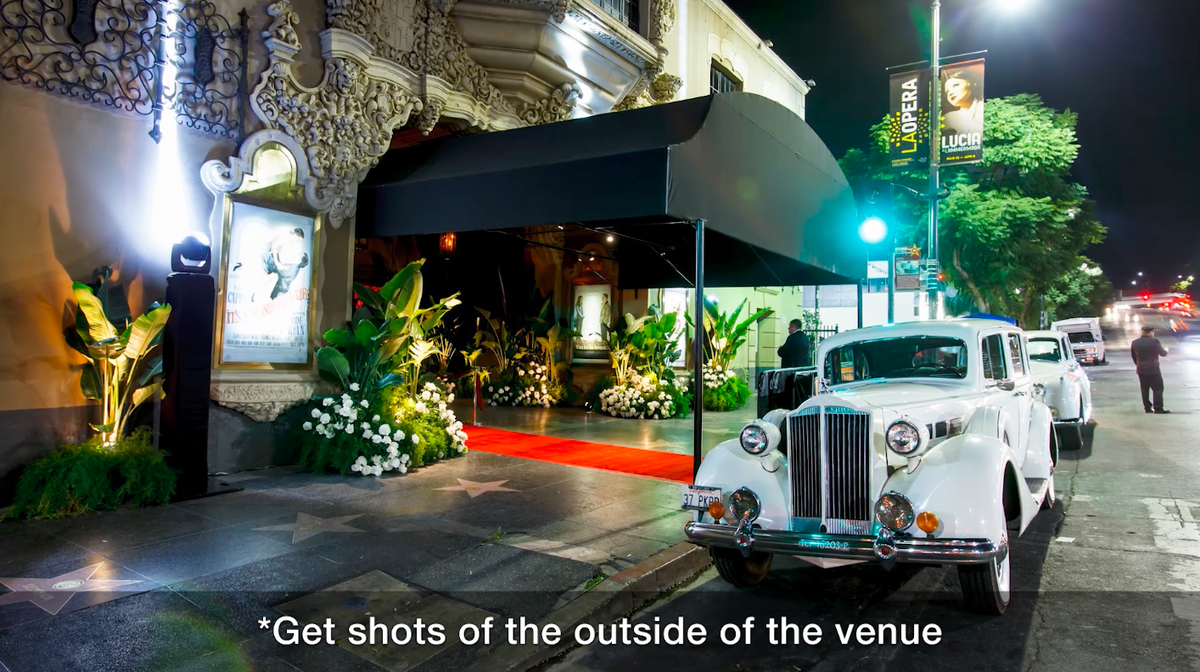
I’ve seen you go outside to get a picture before the event starts. Why do you do that?
“Get shots that tell the story! No matter what day it is, you’re documenting how the event starts and it should be your very first picture. It shows where the event is – sometimes it’s an attractive photo and sometimes it isn’t, but it’s your job to document the event and how it started.”
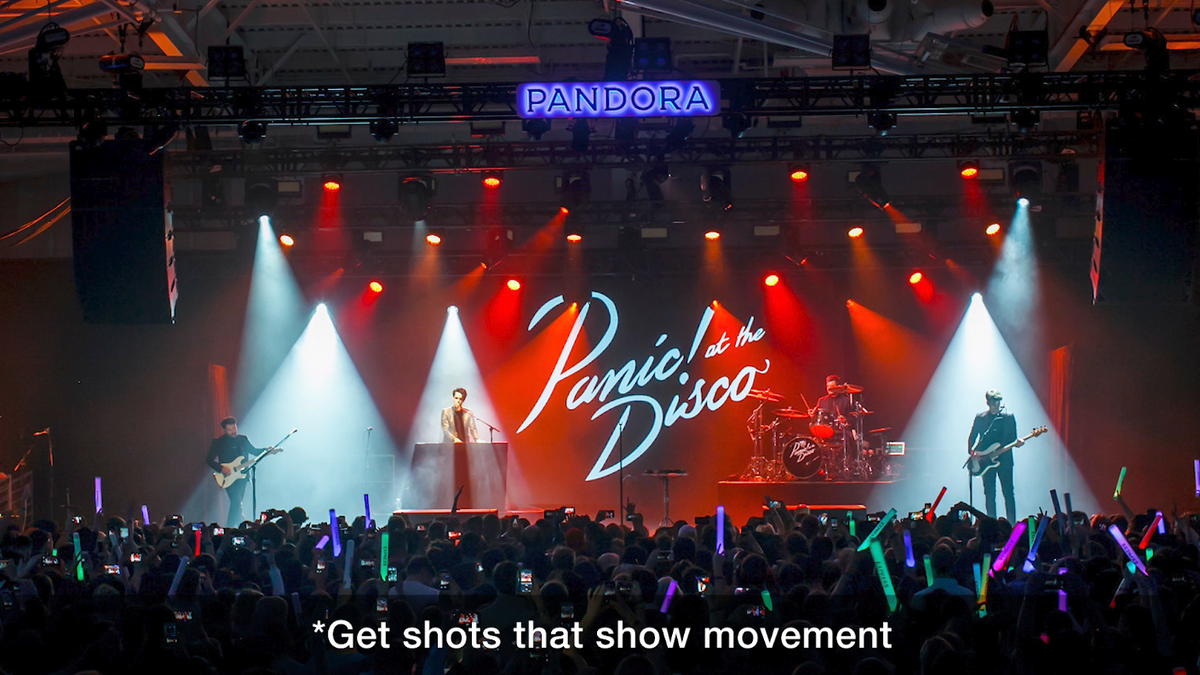
5 How to Build A Portfolio
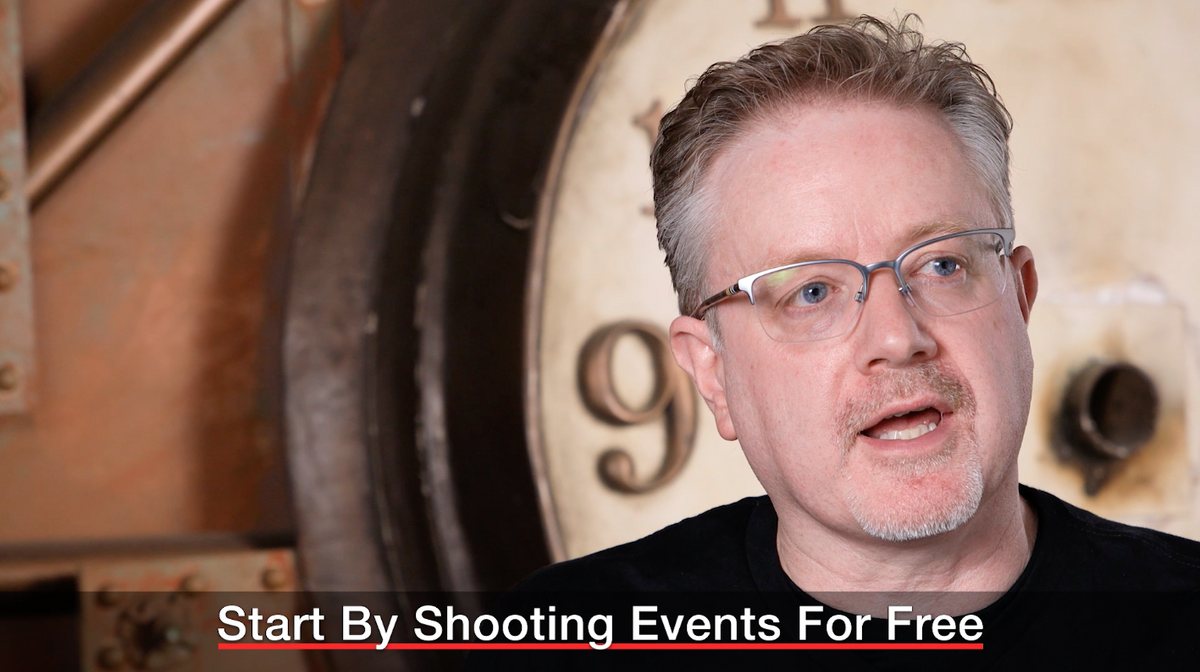
If you’re going to be an event photographer, you’re going to need a portfolio. Today’s portfolio is obviously a website and Instagram, but if you’re going to have a website and Instagram, you need images! So how do we get images if we don’t have any events?
Start by Shooting Events for Free.
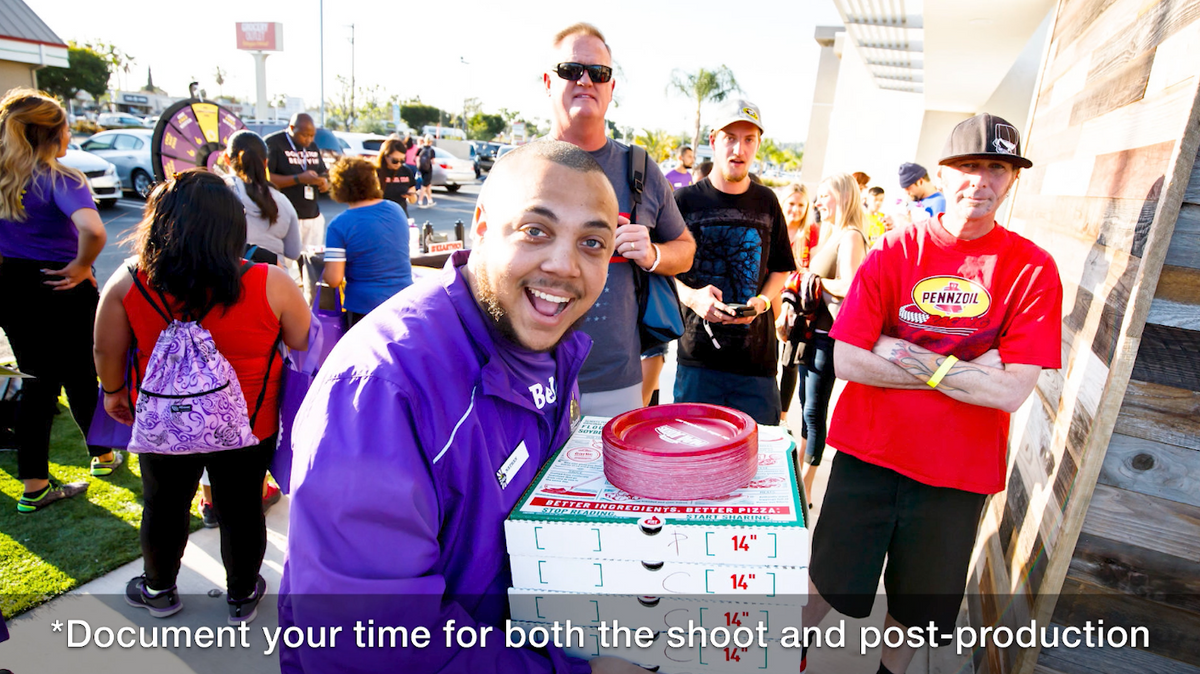
“If you want to get into shooting an event or venue that you’ve never done before, you’re going to have to shoot for free. But don’t look at it like you’re going it for free – think of it as if you’re going to the gym, you’re working out that muscle, and you then don’t have the pressure of getting specific things for the client because they’re not paying you. Check with your local venues, chamber of commerce; find out if there are store openings and then just ask. it’s rare that someone is going to say no, so choose some good options to either get good images or make good connections. It’s also important to document your time on the shoot and postproduction, so you know how much time it takes for you to do.”
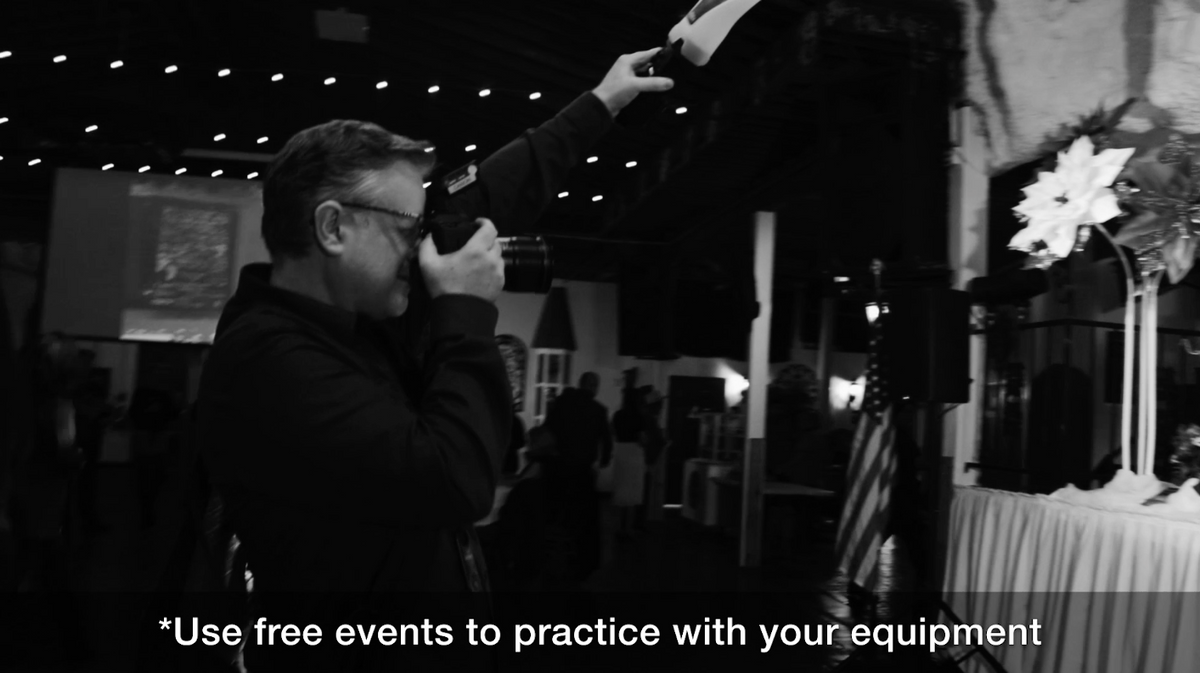
6 Send An Invoice
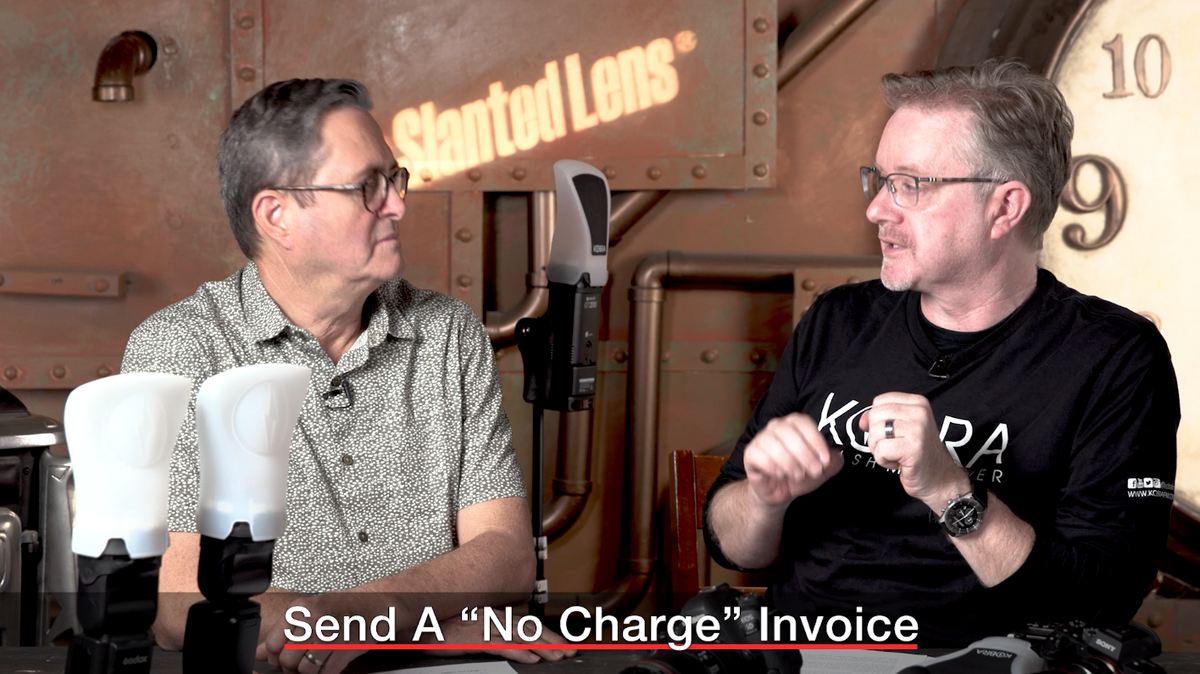
So the event is all done, you’ve delivered the images, are you all done and just walk away?
“When done the event and sending the link for the images, also send an invoice. When shooting for free, send a “no charge” invoice, documenting the time you spent, AND include what you would normally charge for that work. Even though they’re not paying for it, it’s important for you to document it, and then next time around when they want to hire you because you did such a great job, they know how much it’s going to cost them. “
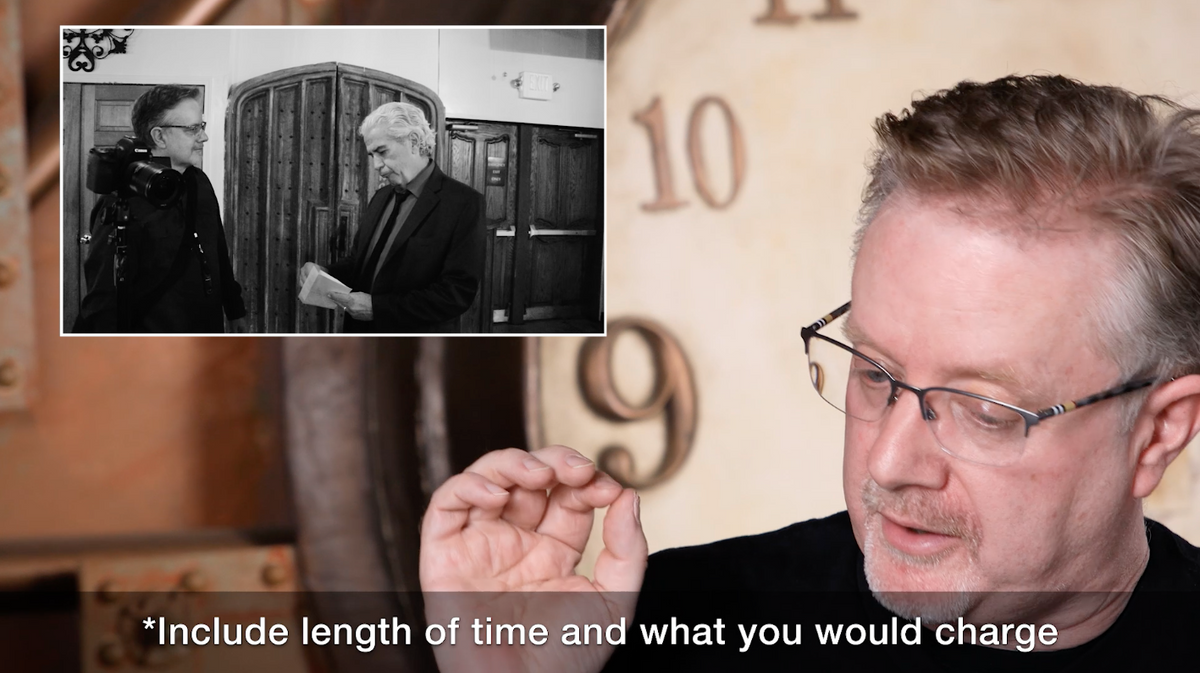
7 Stay In Touch With Clients
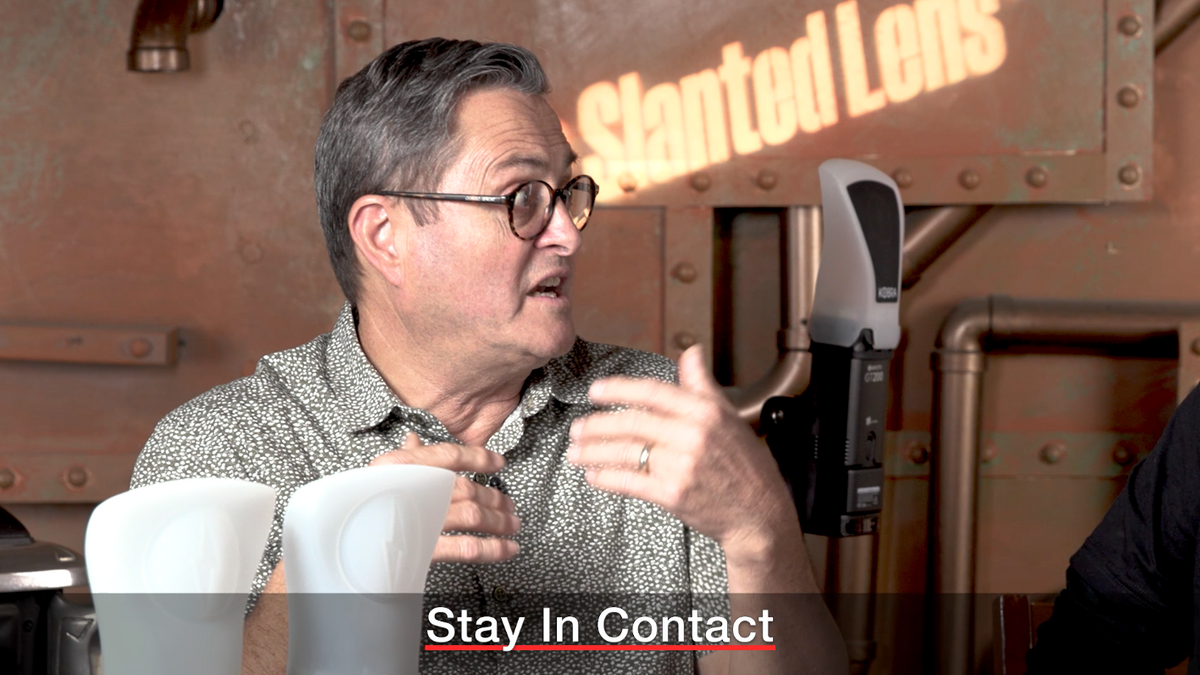
I then think it’s important to stay in contact with the client. Reach out within a month, commenting on their calendar. “Hey, are you needing anyone for this upcoming event?”. Keep an eye on their events and offer your services.
“Another way to keep in touch is to post photos from the event, tag them and they’ll see it and be reminded of you.”
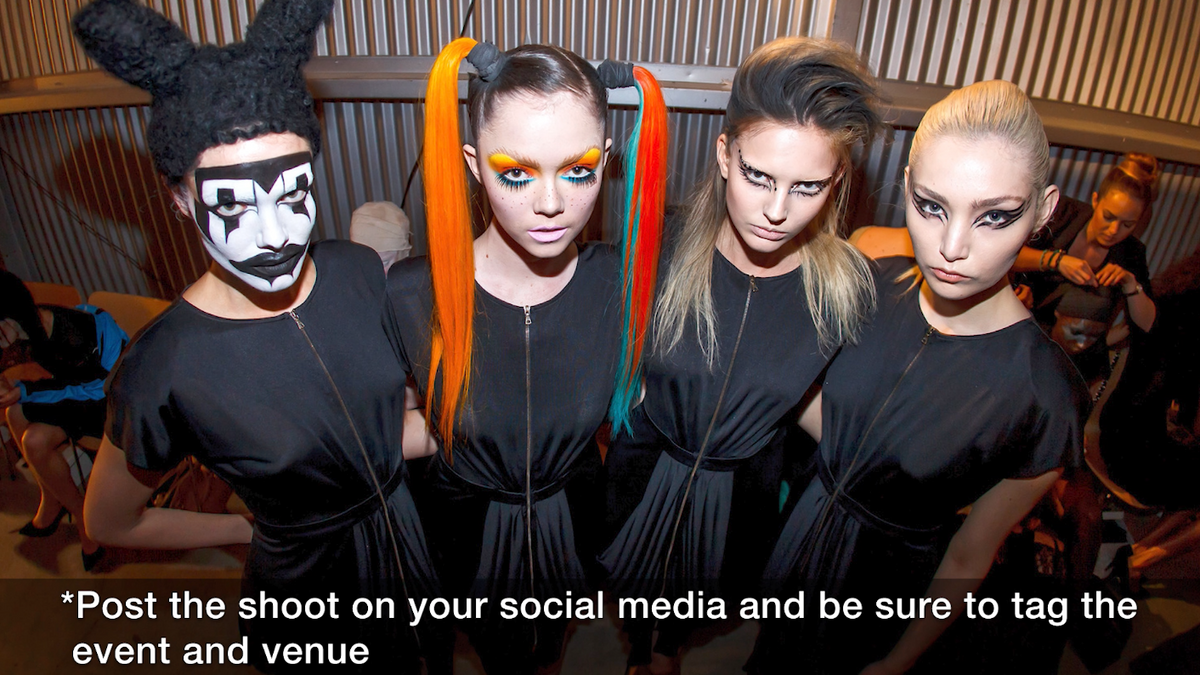
It’s really important to be proactive at these events and network, because anyone you meet could become a client.
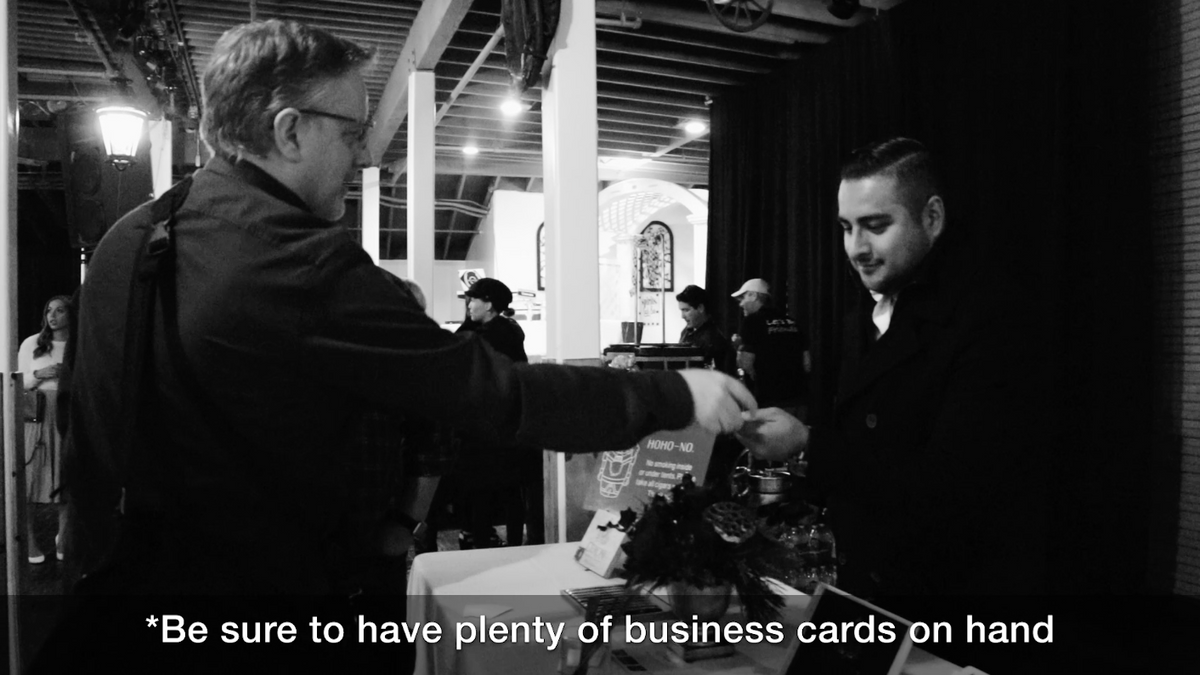
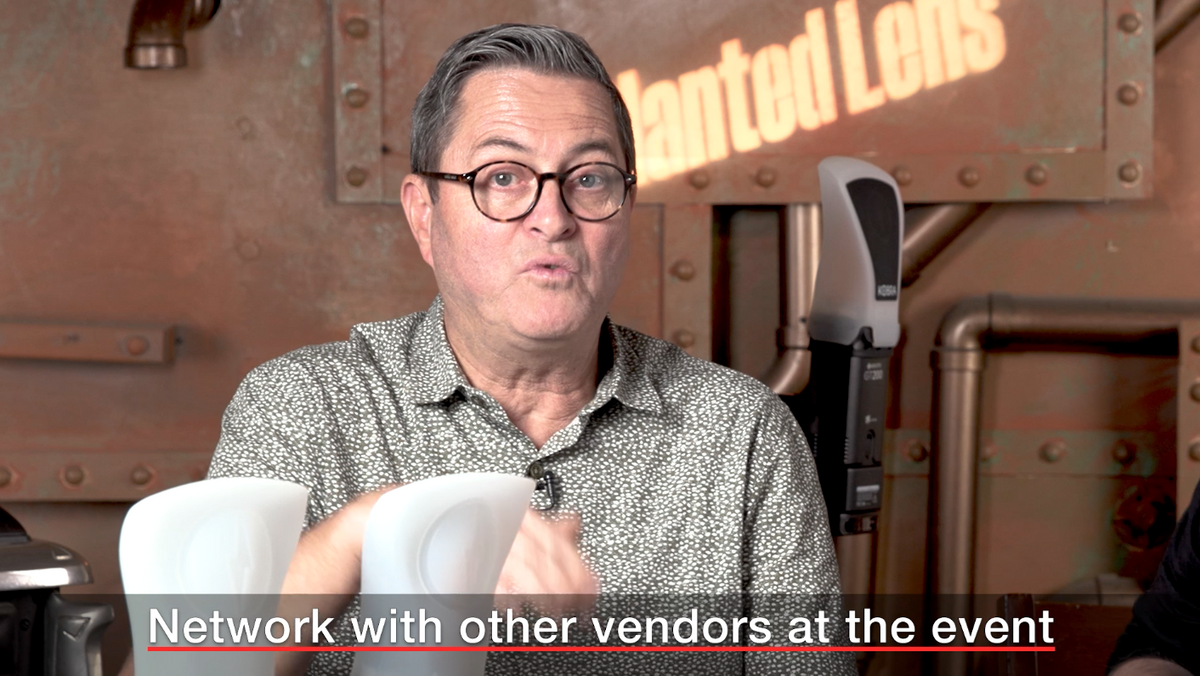
“Working an event is a great portfolio, but it’s even better than a portfolio, because they can see you as you’re working! They see you in action, see you interact with people, and make sure to hand out your card to those people or vendors. If you get images of those vendors, make sure to send them to them and share on social media, because it them gives them content and shows them how good your work is.”
8 Give People Images
Once you have a camera in your hands, people automatically think they just send pictures to people.
“When you send picture for free, always have a watermark on it. People don’t like having watermarks on pictures, but if you put it on the bottom right, you keep your image. Sometimes they’ll cut off the watermark, but simply ask them to tag you on social media. Keep your watermark on the bottom right-hand corner, not too big, cause it simply IDs you.”
So you’ll send images to people?
“I will send pictures out all the time. That’s your portfolio!”
9 Make your client look good!
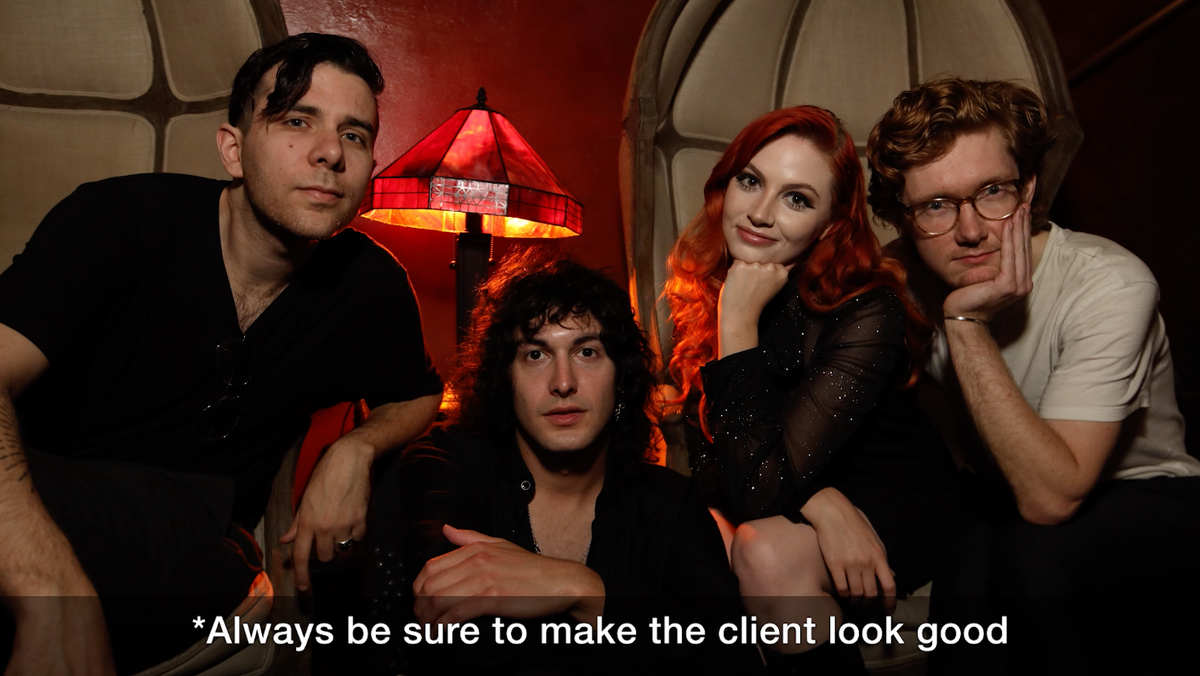
Don’t put pictures up where people don’t look their best or are caught off guard. You want them to look sharp, you want them to look like they’re having a great time, so make sure everyone looks good in all the images!
“Don’t post or share questionable images. When people look bad, even if it’s a funny image, it’s not worth it. Sometimes I’ll even go in and do a little retouching; because you just want every image to look it’s best.
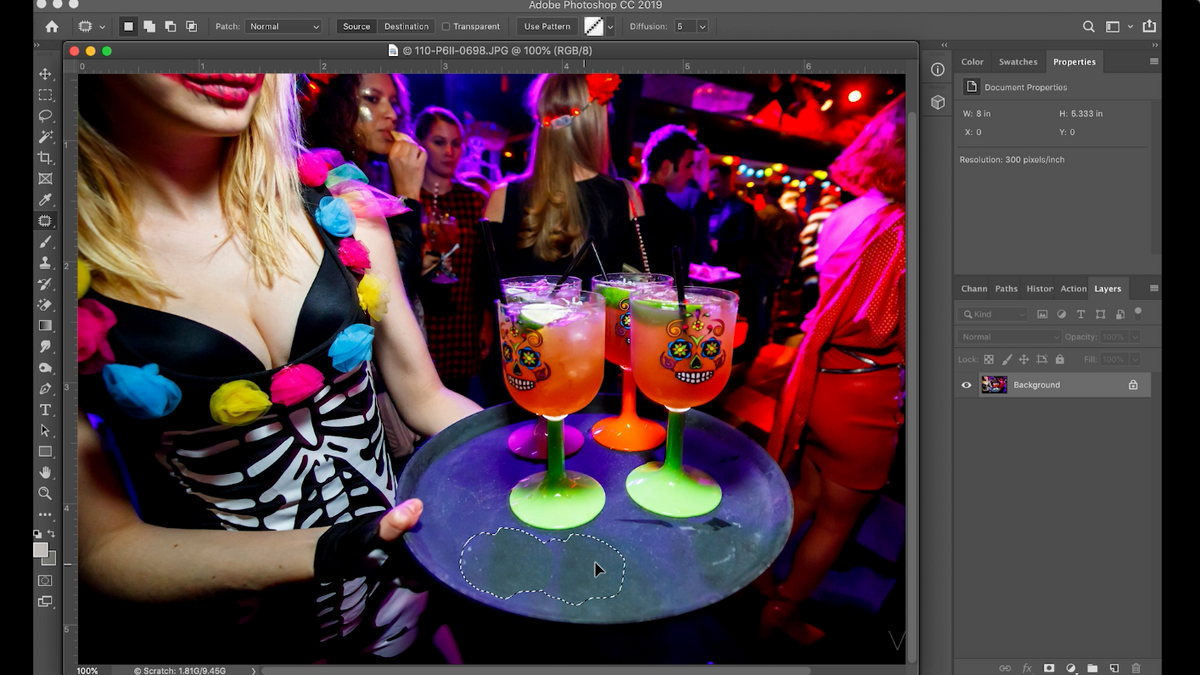
10 Dress and Act Professional
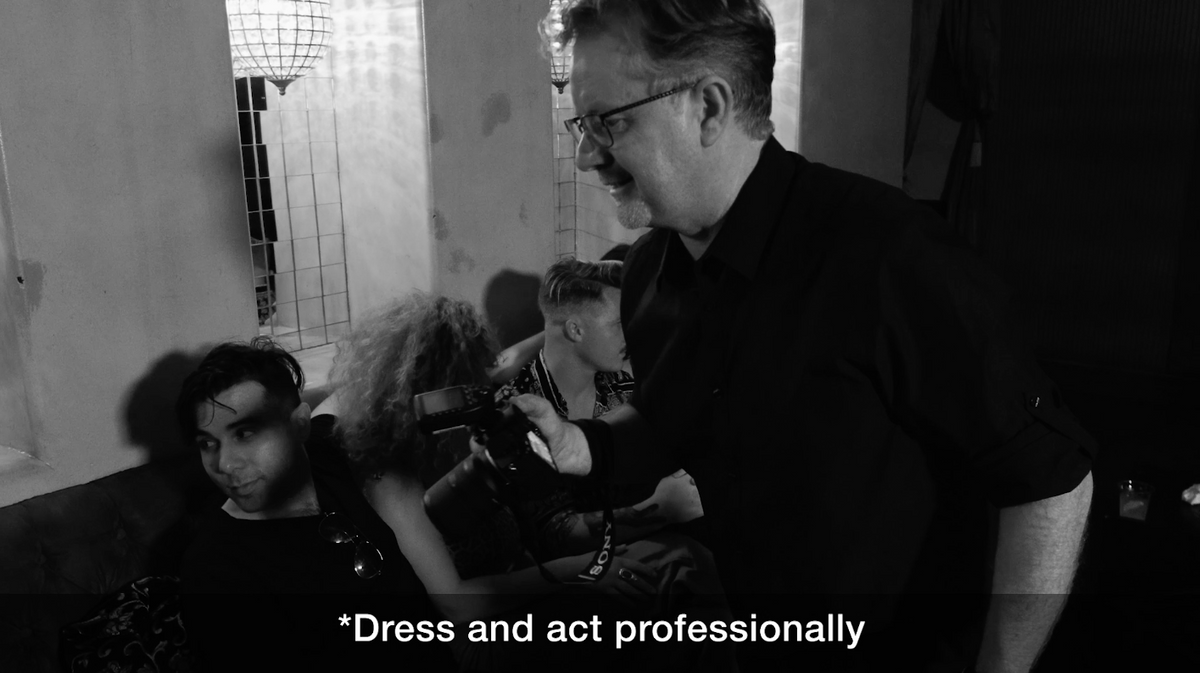
I’m there to document the event, solve problems, be friendly and approachable, yet always professional.
11 Don’t Post Without Permission
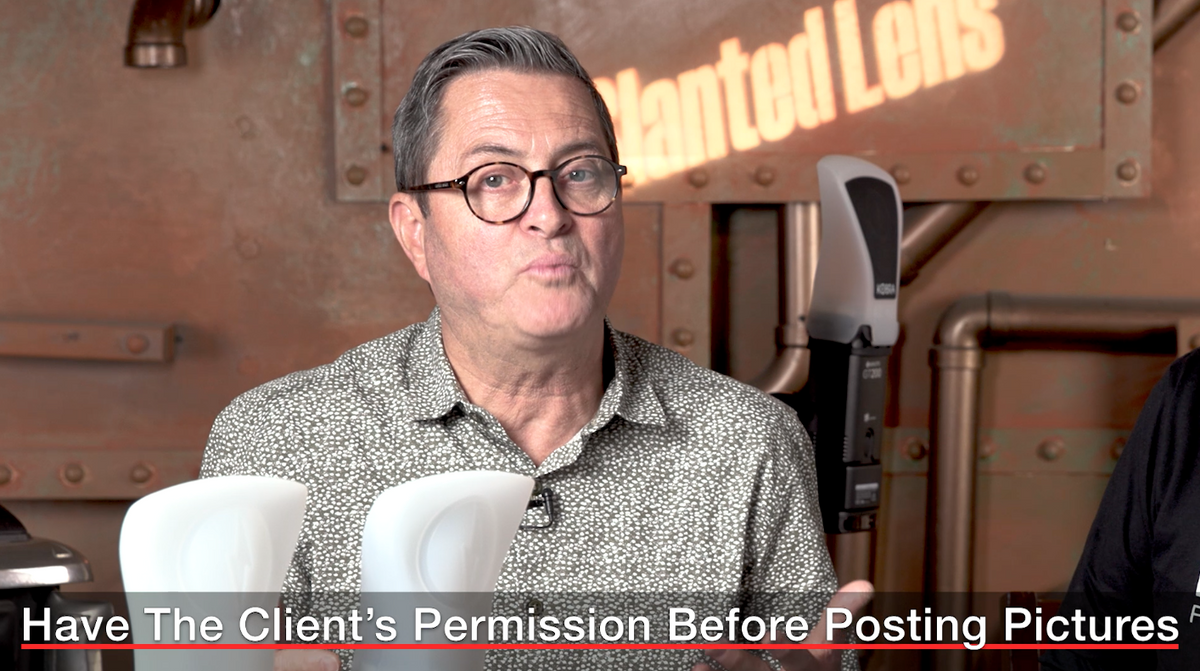
With social media, it’s very easy to be posting things at these events that you probably shouldn’t be. Make sure to get the clients permission, or at least wait until they post about it before you start porting stuff on your social media.
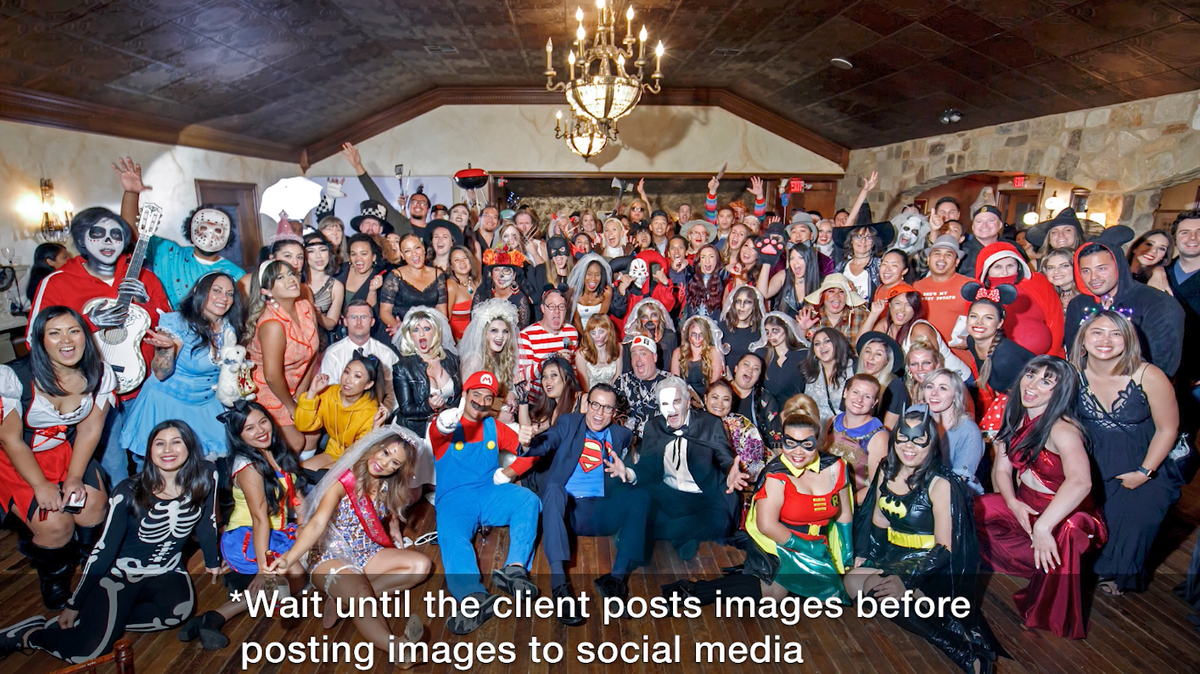
“Definitely wait, especially if it’s someone very important. In the past I posted something too soon, and all of a sudden they say “we didn’t want that posted.” So always wait for them to post something first.”
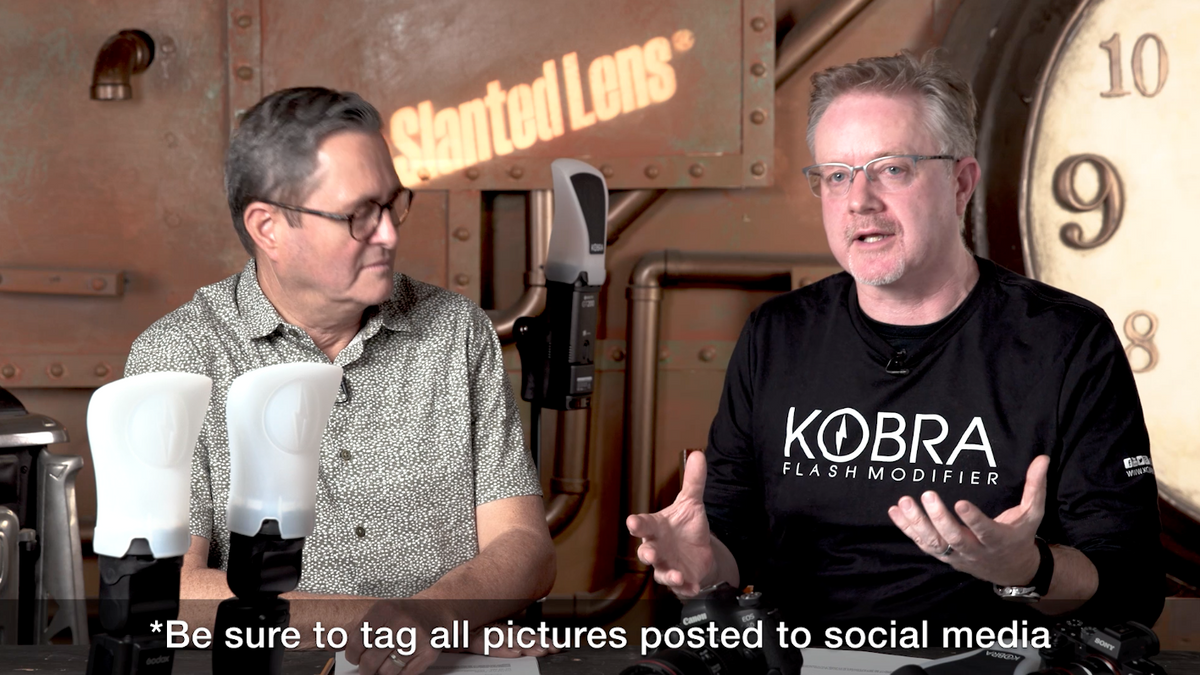
12 When Posting, Always Tag
Is it important to tag on social media?
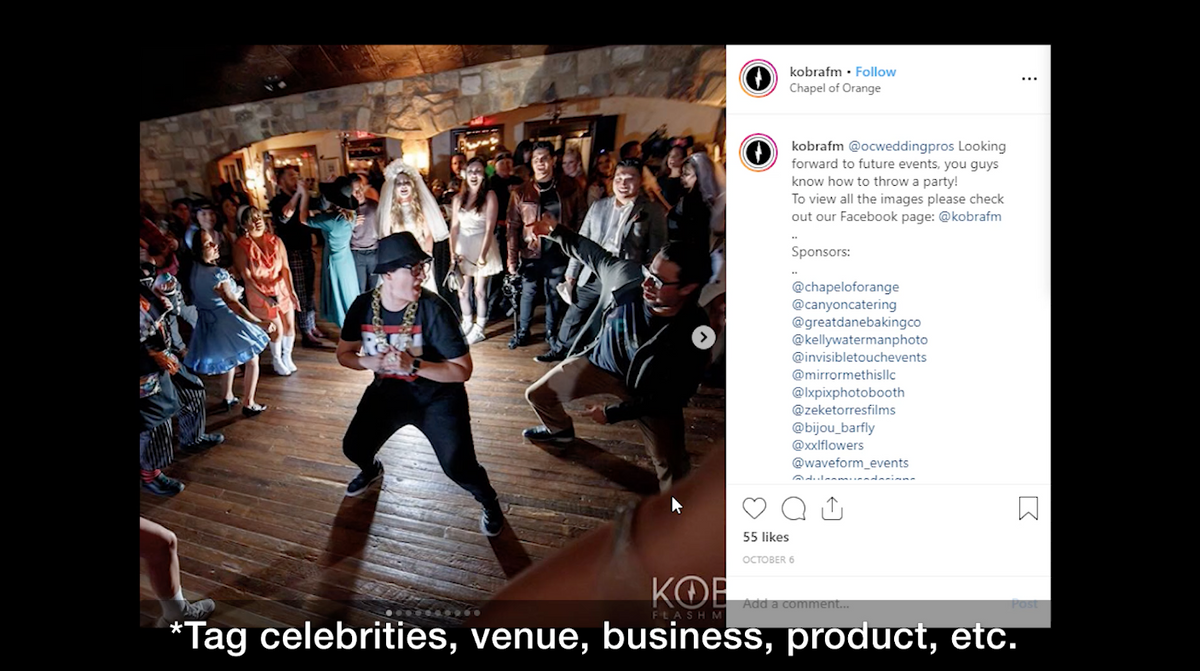
“Yes! Always tag on social media because it’s a way to connect to other people and brands. It’s how people know how to find you, it’s your advertising, your marketing, and if you don’t tag and engage with people, then you’re not being social with people and it’s called social media for a reason.”
Make sure to tag; celebrities, venues, businesses, products, etc.
“It’s basically free marketing for you to just tag everyone involved with the event!”
It’s the same for wedding photographers as it is for event photographers. if you have an event location, make sure to tag that location because it’s likely that other people planning events will be looking at that location tag and can stumble upon your work.
13 Get Insured!
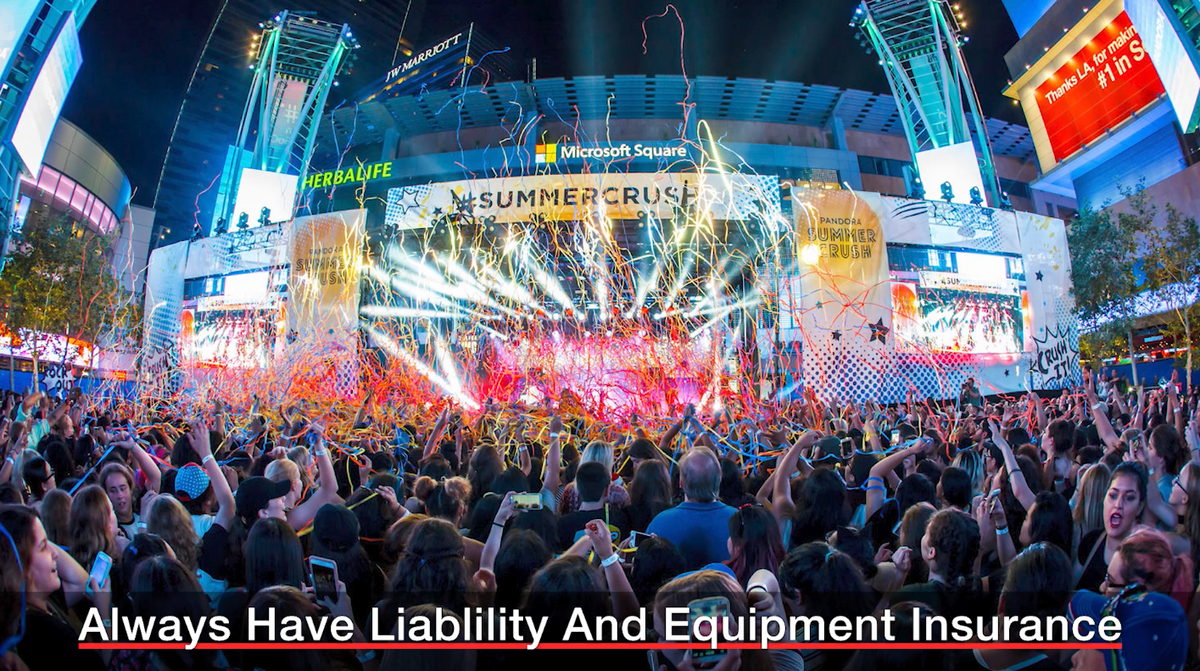
“You need to be insured, you need to have your gear insured because if you lose it you need to be able to replace it really quickly because if you’re booked for an event the following weekend, you can have your gear back and still be ready to shoot that next event. The other reason is, sometimes you won’t even get into an event if you don’t have liability insurance.”
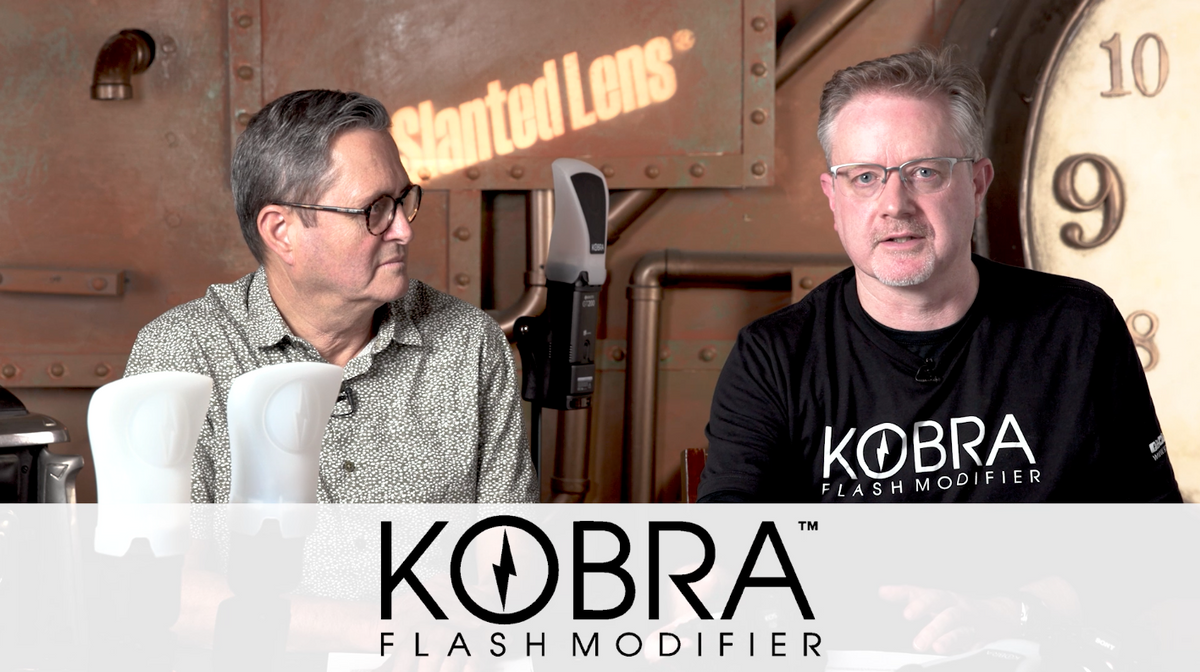
So there’s a great look at how you can make money doing event photography! Everything from how to how to book events, working for free, making your portfolio, and then getting out there and shooting and tagging and be able to get yourself to the next job by working hard, standing out from the crowd and getting some amazing images.
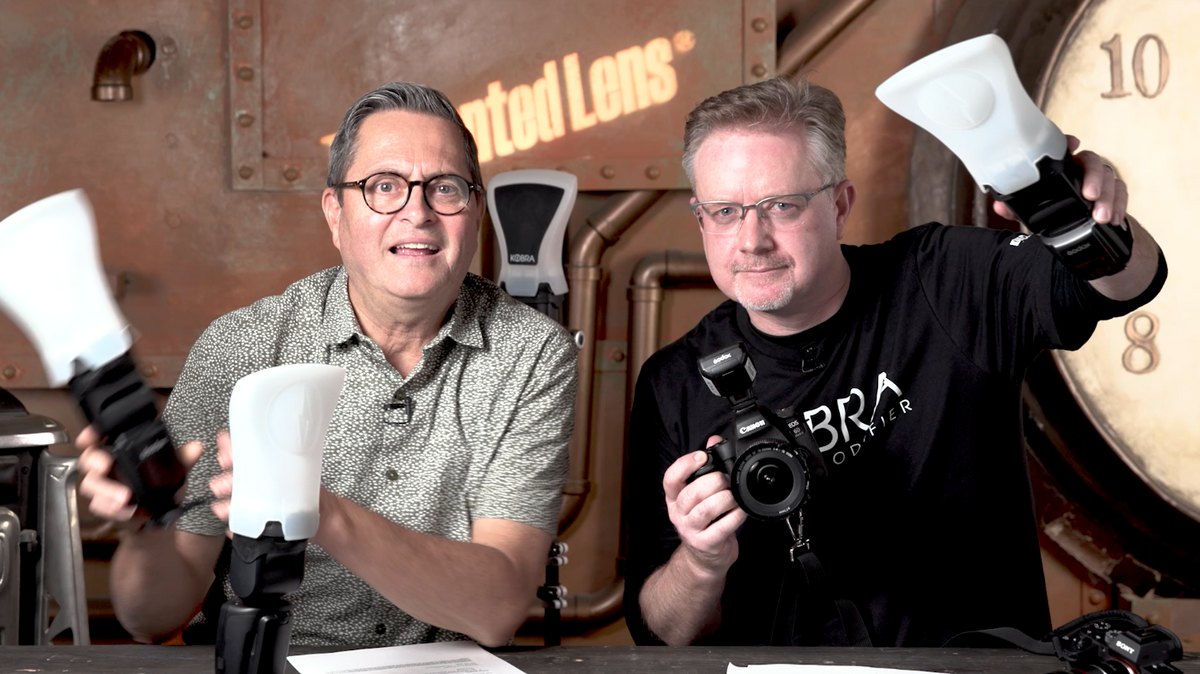
Keep those cameras rolling and keep on clicking!
GEAR USED:
